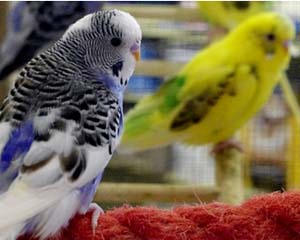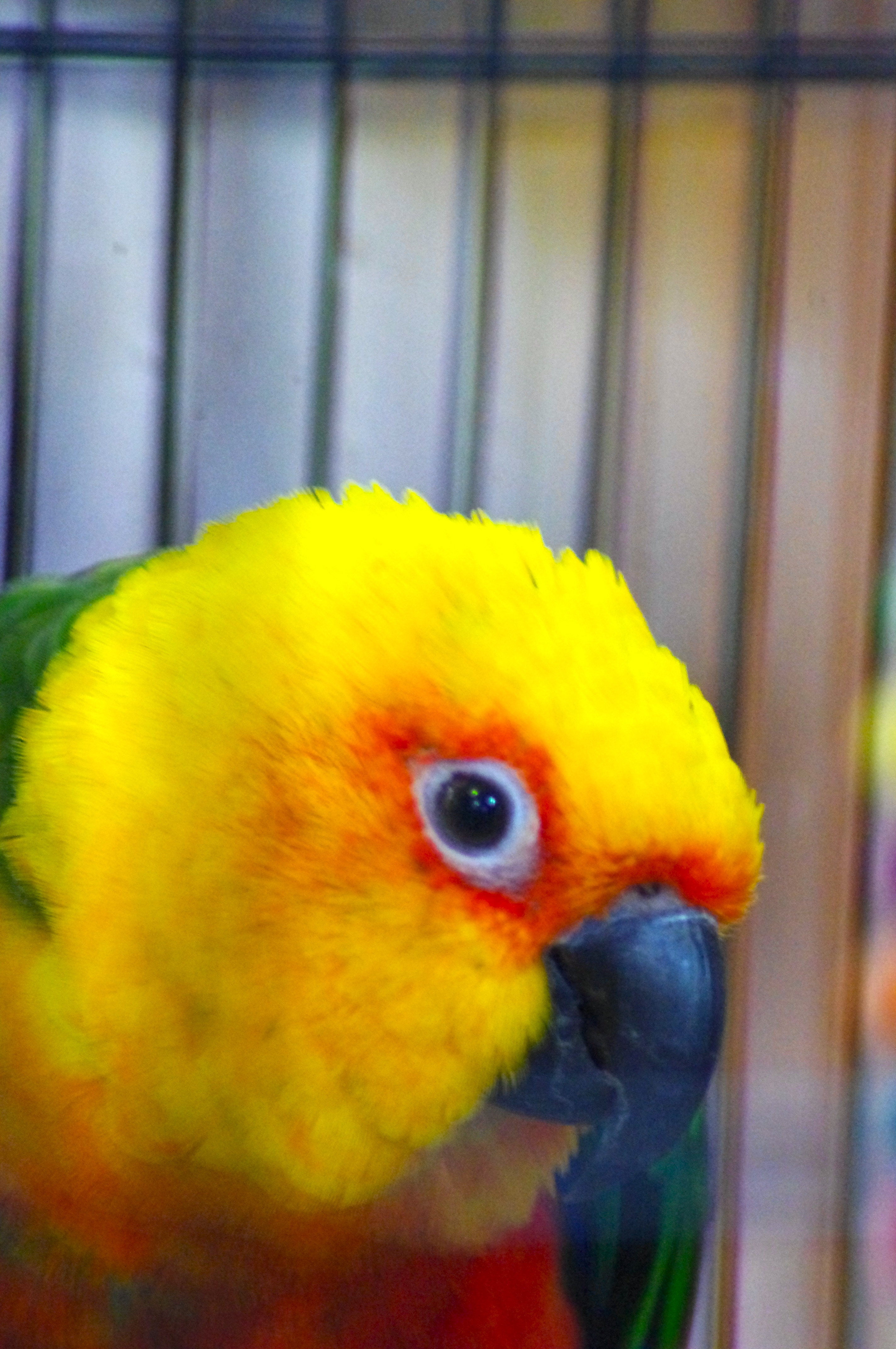A Large Selection of Birds in Albuquerque
 The classification of “bird” holds a host of animals with varieties in size and color that rival tropical fish. The birds you will find in our stores can range from as small as 4 inches for some finches to conures coming in at 14 inches or more. All of them are very social and will require the company of other birds and/or the attention of a human “flock” on a daily basis.
The classification of “bird” holds a host of animals with varieties in size and color that rival tropical fish. The birds you will find in our stores can range from as small as 4 inches for some finches to conures coming in at 14 inches or more. All of them are very social and will require the company of other birds and/or the attention of a human “flock” on a daily basis.
Selecting a Bird
Small birds like finches and canaries have been called the jewels of the animal world due to their beautifully intricate patterns and colors. The sound of their songs and chatter is a thing that owners cherish. Most finches do well in a community setting given enough room, so be sure to talk with an expert at Clark’s about housing multiple types of birds together.
Medium sized birds such as budgies, cockatiels, and lovebirds can be housed alone, in pairs or in larger groups given enough room. Housing them alone, they will see you as their flock mate; they will love and need your daily interaction. Housing them together will form strong bonds with the other birds and may or may not allow you into their social group.
Large birds like conures and small parrots, can be housed alone or in pairs. Just like with the medium sized, these will need daily interaction. Large birds are also very intelligent. They love solving puzzles and will develop strong personalities. They do very well with a daily routine. They can bond very strongly with a single person to the exclusion of every one else in the house, but this can sometimes be avoided with proper socialization.
Things to think about before buying
- How often are you home? No matter what type of bird you get they will require daily care. Some of the larger ones will need you to set aside a block of time for play and cuddling every day. They love routine and some of them will not take well to any deviations from your regular schedule, such as vacations and business trips.
- Where will they live? The cage needs to be off the floor and away from the direct current of any air vents to avoid drafts that may cause respiratory problems. The cage needs to be an appropriate size for the bird or birds you plan to keep. Things like gauge of wire, spacing between bars and overall space need to be thought of. Please consult one of our specialists when selecting the right cage.
- Do you think the noise will bother you? Birds communicate with each other through a variety of noises. From the almost constant chatter of small birds to the screaming outbursts of a small parrot, noise is just something you will have to live with when owning a bird.
- Can you provide for their dietary needs? All of them need some kind of fresh fruits and vegetables every 2-3 days. It’s a good idea to set aside some time once a week to put together a good mix of fresh greens for your bird. Talk with one of our employees about what to put in the mix and what to avoid.
About Talking Birds
 It is true some birds can learn to mimic human language. It is not a good idea to buy one because you want a talking bird. Even if you buy one from a species known for their ability to talk, this does not mean you will get a talking bird. They have very different personalities and abilities like people. Some may not be able to mimic as well as others, some may simply not care to talk. There is no way to make a bird talk; it is just up to them. You can, however, encourage them to talk by spending a lot of time with them and using repetitive words or phrases and associating these with food or actions you know your bird likes. For example, saying “Good Morning!” every time you uncover your bird in the morning may prompt them to start saying the same to you.
It is true some birds can learn to mimic human language. It is not a good idea to buy one because you want a talking bird. Even if you buy one from a species known for their ability to talk, this does not mean you will get a talking bird. They have very different personalities and abilities like people. Some may not be able to mimic as well as others, some may simply not care to talk. There is no way to make a bird talk; it is just up to them. You can, however, encourage them to talk by spending a lot of time with them and using repetitive words or phrases and associating these with food or actions you know your bird likes. For example, saying “Good Morning!” every time you uncover your bird in the morning may prompt them to start saying the same to you.
